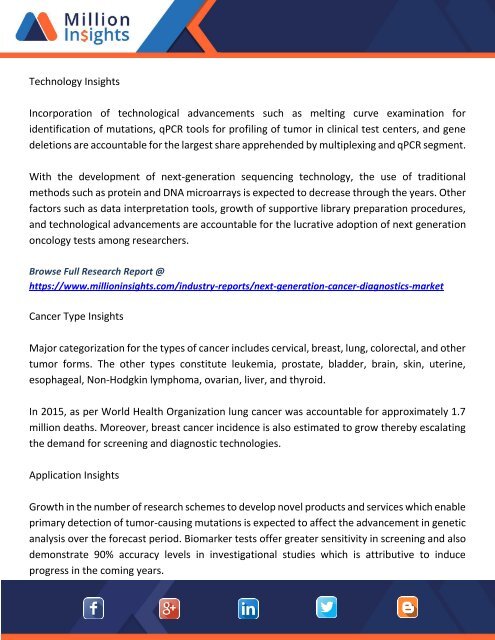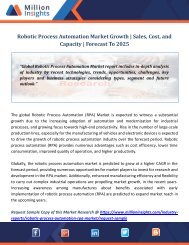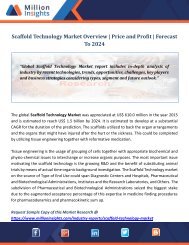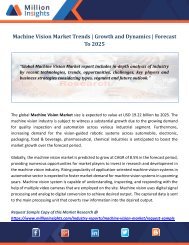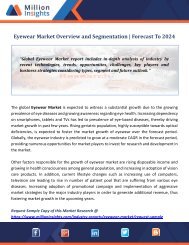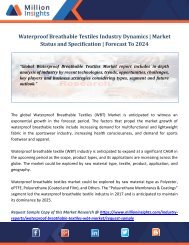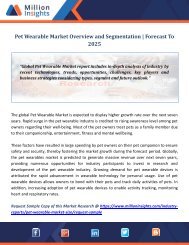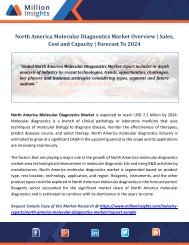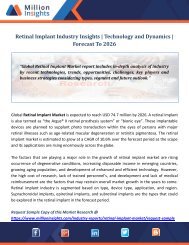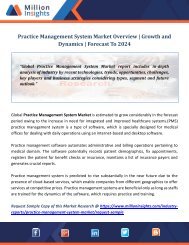Next Generation Cancer Diagnostics Market Insights Dynamics and Demand Till 2025
You also want an ePaper? Increase the reach of your titles
YUMPU automatically turns print PDFs into web optimized ePapers that Google loves.
Technology <strong>Insights</strong><br />
Incorporation of technological advancements such as melting curve examination for<br />
identification of mutations, qPCR tools for profiling of tumor in clinical test centers, <strong>and</strong> gene<br />
deletions are accountable for the largest share apprehended by multiplexing <strong>and</strong> qPCR segment.<br />
With the development of next-generation sequencing technology, the use of traditional<br />
methods such as protein <strong>and</strong> DNA microarrays is expected to decrease through the years. Other<br />
factors such as data interpretation tools, growth of supportive library preparation procedures,<br />
<strong>and</strong> technological advancements are accountable for the lucrative adoption of next generation<br />
oncology tests among researchers.<br />
Browse Full Research Report @<br />
https://www.millioninsights.com/industry-reports/next-generation-cancer-diagnostics-market<br />
<strong>Cancer</strong> Type <strong>Insights</strong><br />
Major categorization for the types of cancer includes cervical, breast, lung, colorectal, <strong>and</strong> other<br />
tumor forms. The other types constitute leukemia, prostate, bladder, brain, skin, uterine,<br />
esophageal, Non-Hodgkin lymphoma, ovarian, liver, <strong>and</strong> thyroid.<br />
In 2015, as per World Health Organization lung cancer was accountable for approximately 1.7<br />
million deaths. Moreover, breast cancer incidence is also estimated to grow thereby escalating<br />
the dem<strong>and</strong> for screening <strong>and</strong> diagnostic technologies.<br />
Application <strong>Insights</strong><br />
Growth in the number of research schemes to develop novel products <strong>and</strong> services which enable<br />
primary detection of tumor-causing mutations is expected to affect the advancement in genetic<br />
analysis over the forecast period. Biomarker tests offer greater sensitivity in screening <strong>and</strong> also<br />
demonstrate 90% accuracy levels in investigational studies which is attributive to induce<br />
progress in the coming years.


